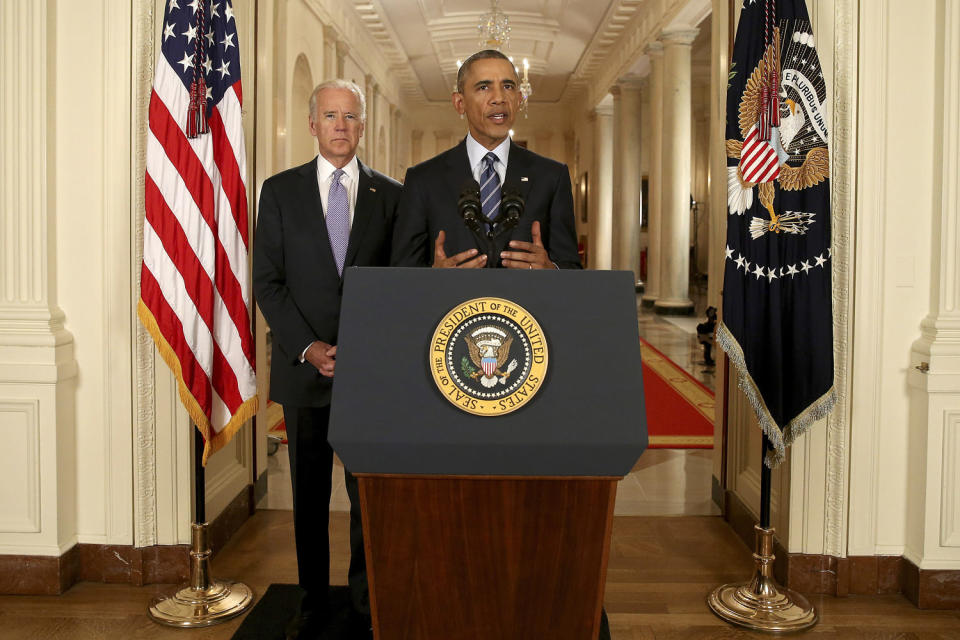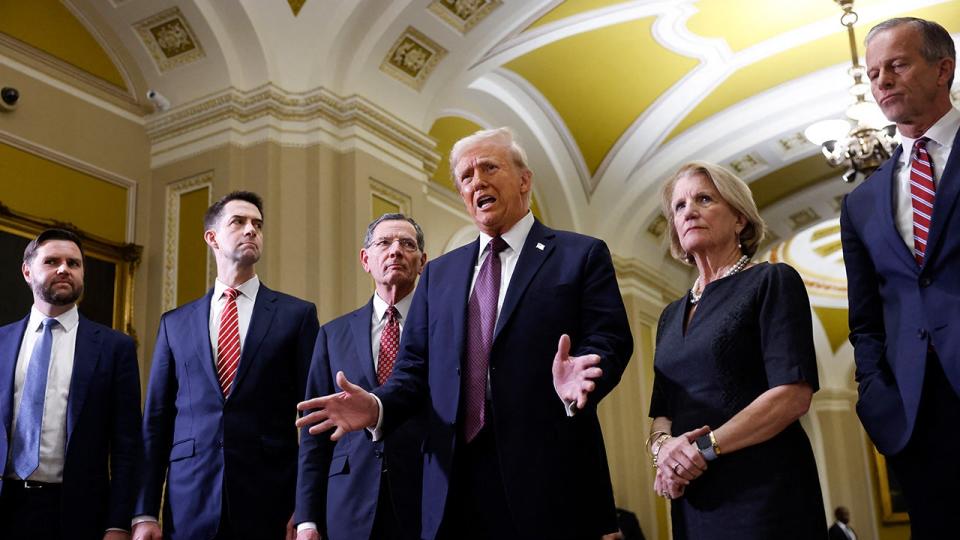
The Democrat-only-passed Inflation Reduction Act is still unfolding, with the biggest changes to Medicare coming in the next two years.In 2025, copays covered by Medicare prescription plans will be capped at a total of $2,000 per year. Seniors have the option of a payment plan to spread out the cost over months as well. The government is also applying subsidies to keep prescription plan premiums from rising more than $35 a month.New prescription pricing will go into effect in 2026. It’s the result of the first-ever direct negotiations between Medicare and drugmakers.These processes may come to a sudden halt under the new Congress and administration as some Republicans have campaigned on repealing the Inflation Reduction Act as a way of drastically cutting federal spending. Republicans argue that negotiating prescription prices could hamper drugmakers, who stand to lose too much profit that could stifle innovation.Meanwhile, President-elect Donald Trump, who supported direct government-to-pharmaceutical negotiations during his first term, now wants to target pharmacy benefit managers who work with insurers and drug makers on pricing instead.” the horrible middleman that makes more money, frankly, than the drug companies,” Trump said in remarks earlier this month. “They don’t do anything except they’re a middleman. We’re gonna knock out the middleman.”Other policies are also in limbo, including wider access to free vaccines and cheaper insulin for seniors.”These changes do have important implications for people with Medicare. We just really don’t have the answers to these questions right now,” Juliette Cubanski of KFF said. “The political environment really is a lot of unknowns at this point.”But Republican ambitions may be met with bipartisan public support to keep changes to Medicare in place.Progressive polling suggests a majority of people, including Republicans, support the provisions of the Inflation Reduction Act, though other polling finds most people are unfamiliar with the law more than two years after its passage.Republicans say they do not plan on cutting Medicare’s budget but have come out against some parts of the Inflation Reduction Act that have expanded it.There are options for how they could alter the law. The president has influence over how aspects of the law are rolled out and could redirect the emphasis or rollout of certain programs without needing Congress’ approval.
The Democrat-only-passed Inflation Reduction Act is still unfolding, with the biggest changes to Medicare coming in the next two years.
In 2025, copays covered by Medicare prescription plans will be capped at a total of $2,000 per year. Seniors have the option of a payment plan to spread out the cost over months as well. The government is also applying subsidies to keep prescription plan premiums from rising more than $35 a month.
New prescription pricing will go into effect in 2026. It’s the result of the first-ever direct negotiations between Medicare and drugmakers.
These processes may come to a sudden halt under the new Congress and administration as some Republicans have campaigned on repealing the Inflation Reduction Act as a way of drastically cutting federal spending.
Republicans argue that negotiating prescription prices could hamper drugmakers, who stand to lose too much profit that could stifle innovation.
Meanwhile, President-elect Donald Trump, who supported direct government-to-pharmaceutical negotiations during his first term, now wants to target pharmacy benefit managers who work with insurers and drug makers on pricing instead.
“[They are] the horrible middleman that makes more money, frankly, than the drug companies,” Trump said in remarks earlier this month. “They don’t do anything except they’re a middleman. We’re gonna knock out the middleman.”
Other policies are also in limbo, including wider access to free vaccines and cheaper insulin for seniors.
“These changes do have important implications for people with Medicare. We just really don’t have the answers to these questions right now,” Juliette Cubanski of KFF said. “The political environment really is a lot of unknowns at this point.”
But Republican ambitions may be met with bipartisan public support to keep changes to Medicare in place.
Progressive polling suggests a majority of people, including Republicans, support the provisions of the Inflation Reduction Act, though other polling finds most people are unfamiliar with the law more than two years after its passage.
Republicans say they do not plan on cutting Medicare’s budget but have come out against some parts of the Inflation Reduction Act that have expanded it.
There are options for how they could alter the law. The president has influence over how aspects of the law are rolled out and could redirect the emphasis or rollout of certain programs without needing Congress’ approval.
</div>
#Medicare #savings #face #Trump #Congress












Leave a Reply